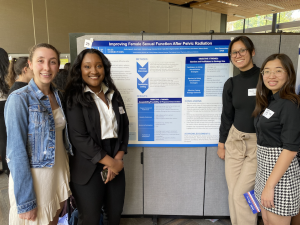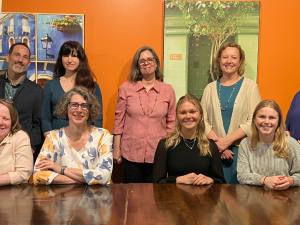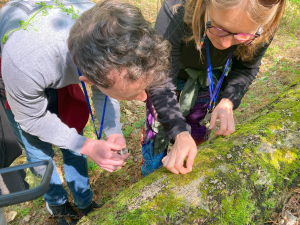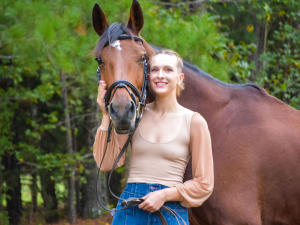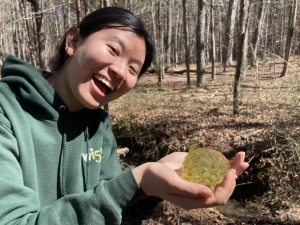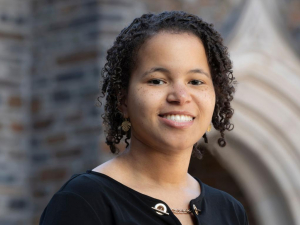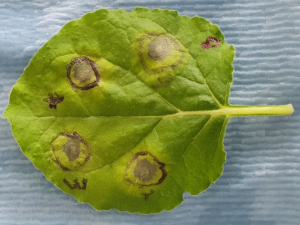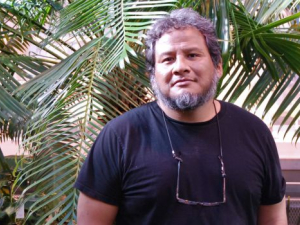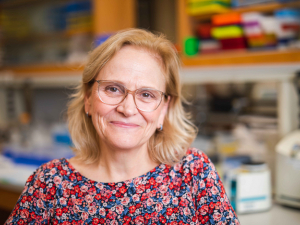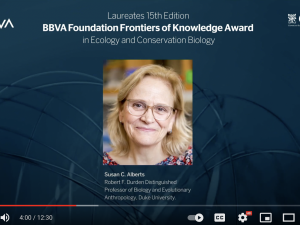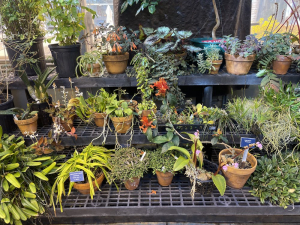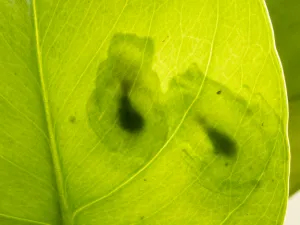The National Academy of Sciences on Tuesday announced the election of 120 new members and 23 international members in recognition of their distinguished and continuing achievements in original research. Established by an Act of Congress signed by President Abraham Lincoln in 1863, the NAS is charged with providing independent, objective advice to the nation on matters related to science and technology. Duke’s three new members join 31 other members of the National Academy of Sciences on the Duke faculty.… read more about Two Trinity Faculty Elected to National Academy of Sciences »
Each year, Duke Service-Learning recognizes students, faculty and community partners with the Betsy Alden Outstanding Service-Learning Awards. Betsy Alden was a pioneer in service-learning, beginning her work at Duke during the 1980s. Read more about the legacy of Betsy Alden HERE. Recipients are chosen because they represent an exceptional commitment to the ideals of service‐learning. Each winner receives $150 to further develop his/her community-building and leadership skills. They are also recognized at the… read more about 2023 Alden Award Winners Represent Exceptional Commitment to Service-Learning »
Biology and Theater Studies junior Emi Hegarty came to Duke with a plan to major only in Biology with a focus on genetics and genomics, but it was the course “Mechanisms of Animal Behavior” with Professor Stephen Nowicki that rekindled her interest in animal systems. “I love thinking about biology through more of an animal-focused lens,” she says. More specifically, her lens is focused on equine kinematics. With a love for horses that can be traced back to eighth grade, Hegarty worked at a barn during high school, helping… read more about Biology Student Builds Communications Chops Thanks to Theater »
Hidden in an inconspicuous building behind French Family Science Center lie powerful weapons in our fight against climate change: plants. Not just any plants, though. Plants from the past, and plants from the future. The basement of this building houses a treasure trove of data in the form of carefully labelled and organized specimens. These desiccated plants, part of the Duke Herbarium, provide researchers with a snapshot of what species and ecosystems looked like before climate… read more about Climate Lessons from Plants, Past to Future »
DURHAM, N.C. -- Duke Assistant Professor of Biology Jean-Philippe Gibert has been selected to receive an early career award for his work on tiny organisms that could have a big effect on carbon dioxide release worldwide. Found in virtually all environments on Earth, single-celled organisms called protists “likely play an important role in the global carbon cycle that ultimately fuels climate change,” Gibert says. That’s because of what protists like to eat. They gobble up bacteria, which release carbon dioxide… read more about Duke Biologist Who Studies Microbial Food Webs, Climate Change Receives Early Career Award »
After teaching about climate change for 18 years, Emily Bernhardt knows how difficult the subject is for students. “When you say, ‘let’s talk about climate change,’ they don’t feel great,” said Bernhardt, James B. Duke Distinguished Professor of Biology, last week at the Academic Council. “The topic overwhelms people. They end up feeling more sad in these discussions when you start with the science, saying ‘it’s a lot worse than you think.’” Duke’s Climate Commitment is beginning to change that, said Bernhardt and a… read more about Faculty Exchange Ideas on Duke’s Climate Commitment in Academic Council »
DURHAM, N.C. -- The “deathbed rally,” the “last hurrah” -- it’s not unheard of for living things to mysteriously perk up in the moments before death. It turns out that plants do it too, at least at the cellular level. A new study shows that diseased plant cells rally before their final demise, cranking up their protein-making machinery before life fades away. This end-of-life surge serves an important purpose: it actually helps the rest of the plant stay healthy, says Duke biology professor Xinnian Dong. Dong and… read more about Dying Plant Cells Alert Healthy Cells to Save Themselves From Disease »
Name: Jorge Fidhel Gonzalez Position: Supervisor of the Research Greenhouses for the Department of Biology Years at Duke: 13 What he does at Duke: Jorge Fidhel Gonzalez starts every workday by surveying his workspace: the Research Greenhouses that span about 15,000 square feet. Donning cargo shorts, a T-shirt and knee-high rubber boots, his first task is to walk across the sprawling facility behind the Biological Science Building, stopping by… read more about Blue Devil of the Week: A Caretaker for 1,000 Plants »
Susan Alberts, Robert F. Durden Distinguished Professor of Biology and Evolutionary Anthropology, is a co-recipient of the Frontiers of Knowledge Award in Ecology and Conservation Biology. The BBVA Foundation Frontiers of Knowledge Awards, now in their 15th edition, recognize and reward contributions of singular impact in science, technology, the humanities and music. The award is funded with 400,000 euros in each of their eight categories. Alberts, who until last year was… read more about Susan Alberts Receives International Frontiers of Knowledge Award »
In May, Jacob Egol will earn his bachelor’s of science degree in Biology with a concentration in cell and molecular biology, as well as a minor in Music. He was introduced to biology at Duke as a first-year student in the Exploration of Genetics and Genomics FOCUS cluster. Inspired by the course, as well as the many others spanning the subdisciplines of biology, Egol is pursuing an interest in cell and molecular biology and developmental biology. The senior currently works in the Silver Lab, part of the Department of… read more about Biology and Music Enhance the Human Experience »


